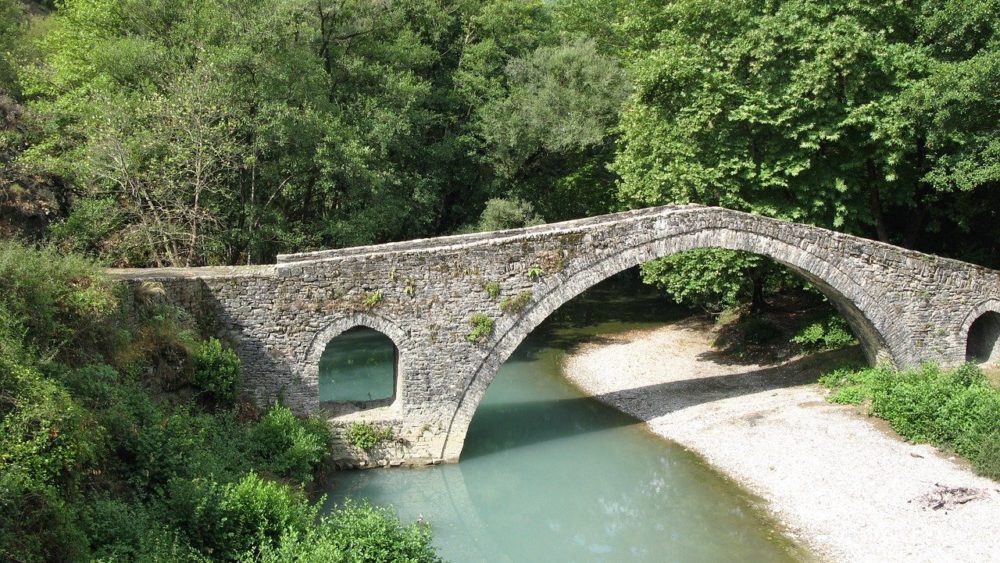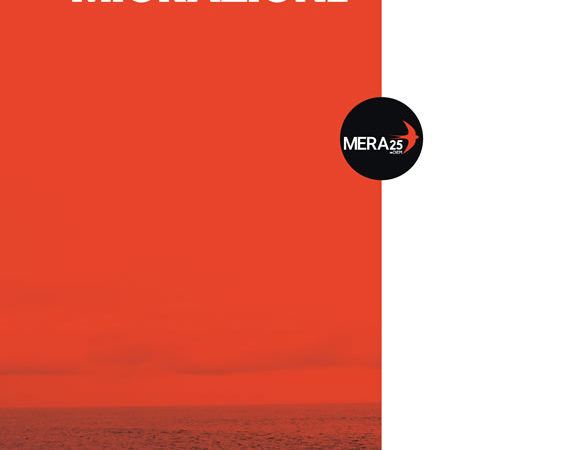A campaign in Greece, coordinated by a DiEM25 member, seeks to combine local knowledge and participation, national politics, international expertise and global awareness to enact a model of progressive change at the local level.
Zagori’s bid to become a UNESCO World Heritage Site is an opportunity to employ established principles of cultural and environmental protection, sustainable development and citizens’ active involvement in order to breathe new life into a unique European region that is being abandoned by its inhabitants and the state.
Zagori is a region in northwestern Greece comprised of around 40 villages dispersed in 1,000 sq. km of stunning natural beauty and diversity.
Ecological conditions and historical circumstances have awarded this area unique cultural and environmental characteristics. Situated between the Ionian Sea and the mountainous Balkan hinterland, the Zagori terrain combines mediterranean and alpine features that give rise to biodiverse ecosystems within its gorges, forests and rivers. Lack of centralised administration and the region’s relative isolation and self-sufficiency through the ages have fostered a strong tradition of autonomy and communalism. Meanwhile, the inhabitants’ aptitude for travel and trade have made them open to outside influences.
The area reached its economic and cultural peak when the Balkans were ruled by the Ottoman Turks.
A 1431 treaty with the Sultan granted the Zagorisian League the privileges of administrative independence and self-rule by an elected Council of Elders — one for each village. During the 18th and 19th centuries, local Greeks active in international trade brought to the region Enlightenment ideas, along with remittances and donations that helped erect churches, bridges, watermills and schools for boys and girls. The medicinal properties of the Vikos Gorge flora also spawned a local tradition in herbal medicine, which was practised by the so called Vikos doctors.
Aside from Greeks and Turks, a multitude of different peoples have actively contributed to the cultural wealth of the region.
In the late Middle Ages the Byzantines lost the area to the Serbs, who where in turn displaced by the Ottomans, following sporadic raids by Albanian clans. The placename Zagori itself is of Slavic origin. The present demographic mix also contains Gypsies and Aromanian Vlachs, some of whom still speak a variant of Romanian. The historical depth of the local culture is best exemplified by the Sarakatsani, an indigenous nomadic tribe whose language contains unique archaic Greek elements and whose traditional costumes are adorned with geometric art patterns. The villages of Zagori are noted for their stone and wood architecture, as well as their rich tradition of folk songs and dances that trace their origins in both pagan and Christian festivals.
The region’s decline started a few decades before the advent of the turbulent 20th century. The extreme violence that followed, culminating in the burning of entire villages by the Nazis, followed by the Greek Civil war, led to the virtual abandonment of the area by the 1950’s. Today the population density is less than 4 inhabitants per square kilometer. Urbanisation is steadily progressing while local economic prospects continue to diminish, with the exception of tourism.
The prospect of Zagori’s inclusion in the UNESCO list of only 40 World Heritage Sites recognised by the UN body for both their cultural and natural significance has been widely viewed as an opportunity to highlight and protect the nature and culture of Zagori and hopefully revive its economy.
The Greek government expressed a formal initial interest in 2014 but there has been no follow up since. Recently, the Ministry of Culture has restarted the process. However, it has decided to assign the duty of drafting a full application to a minimum of technocratic experts, ostensibly to raise the area’s profile in order to attract touristic and cultural interest. In the process, it is underestimating and disregarding the contributions of local initiatives and academics that can enrich the application, as well as, more importantly, the input from local productive forces.
The latter include people involved in animal husbandry, sustainable forestry, beekeeping and collection of aromatic and therapeutic herbs. The exclusion of local workers and a wider set of experts means that the UNESCO bid will not take local needs into account, neither can it be structured as an opportunity to plan a comprehensive and far reaching rejuvenation of Zagori in the direction of inclusive and mild sustainable development.
DiEMer Andreas Andreopoulos is a global expert living in Zagori.
He is a member of the UNESCO Task Force and in charge of the METIS Global Awareness Network, a group of like-minded academics cooperating over the past two decades on instigating large scale sustainable development projects focusing on Modern Social Priorities. METIS is an Accredited Observer to the United Nations Framework Convention on Climate Change and the instigator of EcoVirtuaLands, an initiative in the context of UN Sustainable Development Goals. As the initiator of the Zagori UNESCO40 Initiative, Andreas has been in contact with local stakeholders, both institutional and grassroots, in order to garner ideas and support for the drafting of a holistic and inclusive proposal, to be incorporated into existing UN projects and goals.
The proposal aims to build on the UNESCO pillars of cultural and natural protection to kickstart a comprehensive bottom-up push for the long term economic and social transformation of Zagori that leads to a prosperous and sustainable future for its communities.
This approach can serve as a model for progressive local development on a wider scale.
This campaign, coordinated by a DiEM25 member, seeks to combine tangible benefits for Zagori with the value that can accrue to the movement from the interplay between the local, regional, national, european and global levels to effect positive change on the lives of ordinary people. The world-wide overlapping crises in health, labour, the environment and democracy make the need to focus on models of realistic and sustainable change at the local level more pressing than ever.
Last but not least, such models stand well suited to benefit from the application of ideas in DiEM25’s Postcapitalism pillar, ranging from a commons management of natural resources to technologically sovereign digital platforms.
DiEM25 members are currently discussing possible actions to address the issue discussed in this article. If you’d like to be involved in the Campaign Accelerator project, or if you have knowledge, skills or ideas to contribute on Zagori campaign, join the dedicated thread in our forum and introduce yourself, or get in touch with our team at [email protected].
Photo Source: Georgios Polychron from Pixabay and Wikimedia Commons.
Volete essere informati delle azioni di DiEM25? Registratevi qui!




